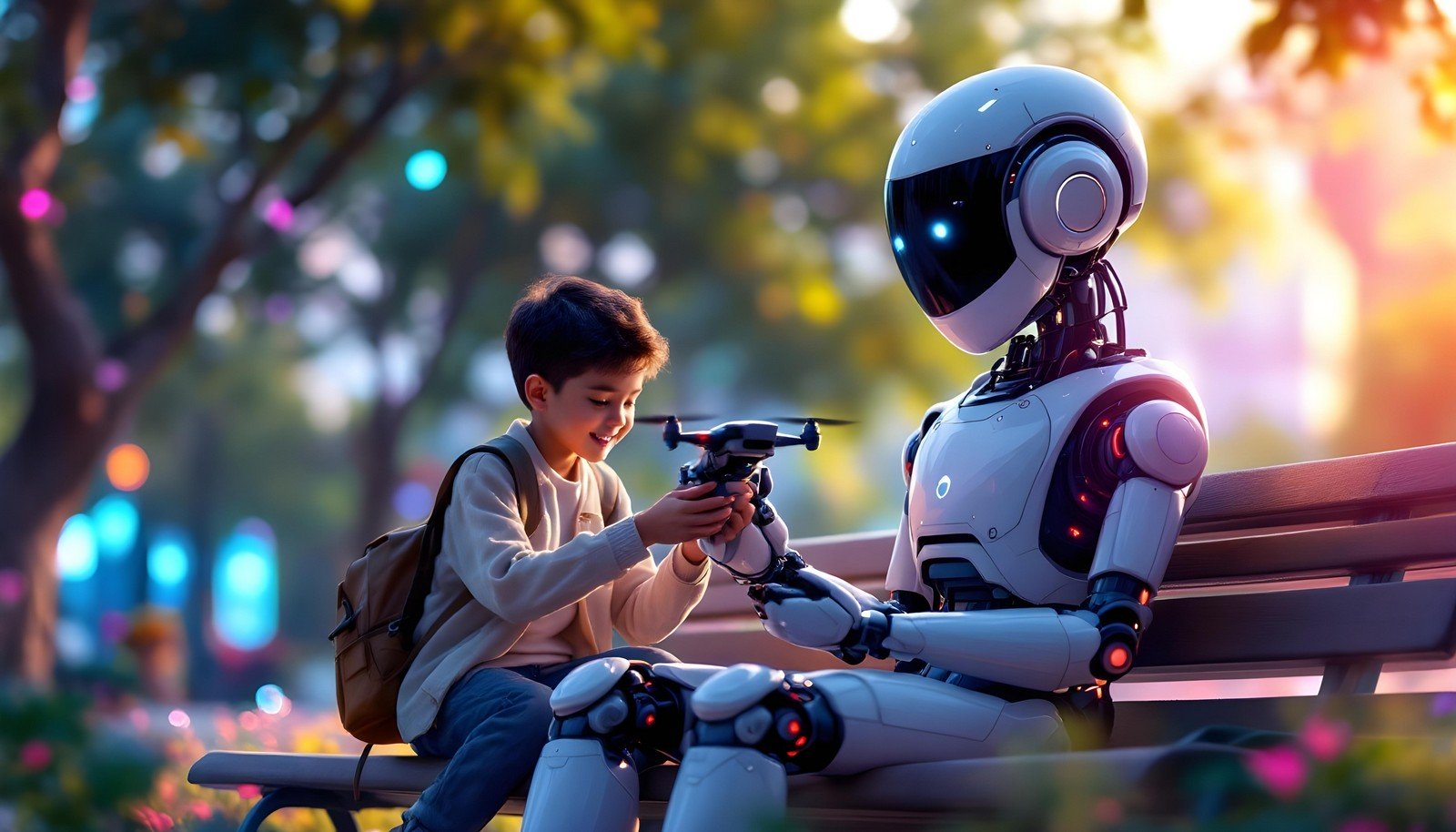Artificial General Intelligence (AGI)

Quick Navigation:
- Artificial General Intelligence (AGI) Definition
- Artificial General Intelligence Explained Easy
- Artificial General Intelligence Origin
- Artificial General Intelligence Etymology
- Artificial General Intelligence Usage Trends
- Artificial General Intelligence Usage
- Artificial General Intelligence Examples in Context
- Artificial General Intelligence FAQ
- Artificial General Intelligence Related Words
Artificial General Intelligence (AGI) Definition
Artificial General Intelligence refers to highly autonomous systems capable of outperforming or matching human cognitive abilities across a wide range of tasks. Unlike specialized AI, which excels in narrowly defined functions, AGI possesses the adaptive, flexible thinking comparable to human intelligence. It involves the capability to understand, learn, and apply knowledge across diverse domains, including problem-solving, creative thinking, and emotional understanding. The development of AGI requires intricate computational models capable of self-improvement and self-awareness, integrating concepts such as neural networks, reinforcement learning, and natural language processing.
Artificial General Intelligence Explained Easy
Imagine a computer that can think, learn, and solve problems just like a person, not just in one thing like playing chess but in everything from math to storytelling. This type of super-smart computer would understand things, learn new skills, and even use common sense. It’s as if you taught a robot to be as smart as a human being, able to do almost anything you can think of.
Artificial General Intelligence Origin
The concept of AGI emerged from early discussions in computer science and cognitive psychology, with roots tracing back to Alan Turing’s exploration of machine intelligence. Researchers in the 1950s and 1960s laid the foundation for what would later become the quest for AGI through the development of algorithms capable of simulating aspects of human thought. Although initial optimism was high, practical advancements were slow due to limitations in processing power and algorithmic complexity.
Artificial General Intelligence Etymology
The term “general intelligence” within this context stems from the concept of general human-like cognitive abilities. “Artificial” refers to man-made or machine-based systems that mimic natural intelligence.
Artificial General Intelligence Usage Trends
Interest in AGI has grown significantly over the past two decades due to advancements in machine learning and computational power. Early research was theoretical, but recent progress in deep learning and AI frameworks has brought the goal of AGI closer to reality. Tech pioneers and prominent figures in the industry, such as Elon Musk and researchers at OpenAI, have fueled discussions about the implications and ethics surrounding AGI. The focus has also shifted towards ensuring that AGI, once developed, will be aligned with human values and safety protocols.
Artificial General Intelligence Usage
- Formal/Technical Tagging: Cognitive Computing, Autonomous Systems, Machine Learning, Advanced AI
- Typical Collocations: development of AGI, AGI capabilities, AGI research, AGI frameworks, AGI ethics, AGI potential
Artificial General Intelligence Examples in Context
- “The research team is focusing on AGI development to create a system that learns and thinks with human-like flexibility.”
- “Concerns about AGI often involve its potential impacts on job markets and ethical dilemmas related to autonomy.”
- “Startups are racing to develop AGI that could revolutionize everything from education to healthcare.”
Artificial General Intelligence FAQ
- What is Artificial General Intelligence?
AGI is an advanced form of AI that can understand, learn, and apply knowledge across a broad range of tasks, similar to human intelligence. - How is AGI different from narrow AI?
Narrow AI specializes in specific tasks, while AGI can adapt and function across various tasks with human-like capabilities. - Why is AGI important?
AGI has the potential to revolutionize industries, improve quality of life, and solve complex global problems. - When will AGI be developed?
Experts debate timelines, but many predict it could be achieved within this century, although exact dates remain uncertain. - What are the risks of AGI?
Potential risks include loss of jobs, ethical dilemmas, and ensuring that AGI acts in alignment with human values. - How does AGI learn?
AGI would use advanced machine learning techniques, such as deep learning and reinforcement learning, to adapt and learn from experience. - Can AGI be conscious?
This is a topic of debate. Some researchers believe AGI might achieve a form of consciousness, while others argue it may remain purely computational. - Who are the leading researchers in AGI?
Institutions like OpenAI, DeepMind, and various universities lead AGI research, along with notable figures like Demis Hassabis and Elon Musk. - What would AGI mean for the future of work?
AGI could automate tasks that currently require human intelligence, leading to significant changes in job structures and new opportunities. - What safeguards are being considered for AGI?
Researchers are developing ethical guidelines and control measures to ensure AGI remains beneficial and aligned with human interests.
Artificial General Intelligence Related Words
- Categories/Topics: Artificial Intelligence, Cognitive Science, Machine Learning, Robotics
- Word Families: Intelligence, Cognition, Artificial, Computation
Did you know?
An intriguing fact about AGI is that despite its potential, there is still no universally accepted roadmap for achieving it. Even the leading experts admit that the journey to AGI may involve unexpected breakthroughs and new scientific discoveries that could completely reshape our understanding of intelligence and consciousness.
PicDictionary.com is an online dictionary in pictures. If you have questions or suggestions, please reach out to us on WhatsApp or Twitter.Authors | Arjun Vishnu | @ArjunAndVishnu

I am Vishnu. I like AI, Linux, Single Board Computers, and Cloud Computing. I create the web & video content, and I also write for popular websites.
My younger brother, Arjun handles image & video editing. Together, we run a YouTube Channel that's focused on reviewing gadgets and explaining technology.



Comments powered by CComment